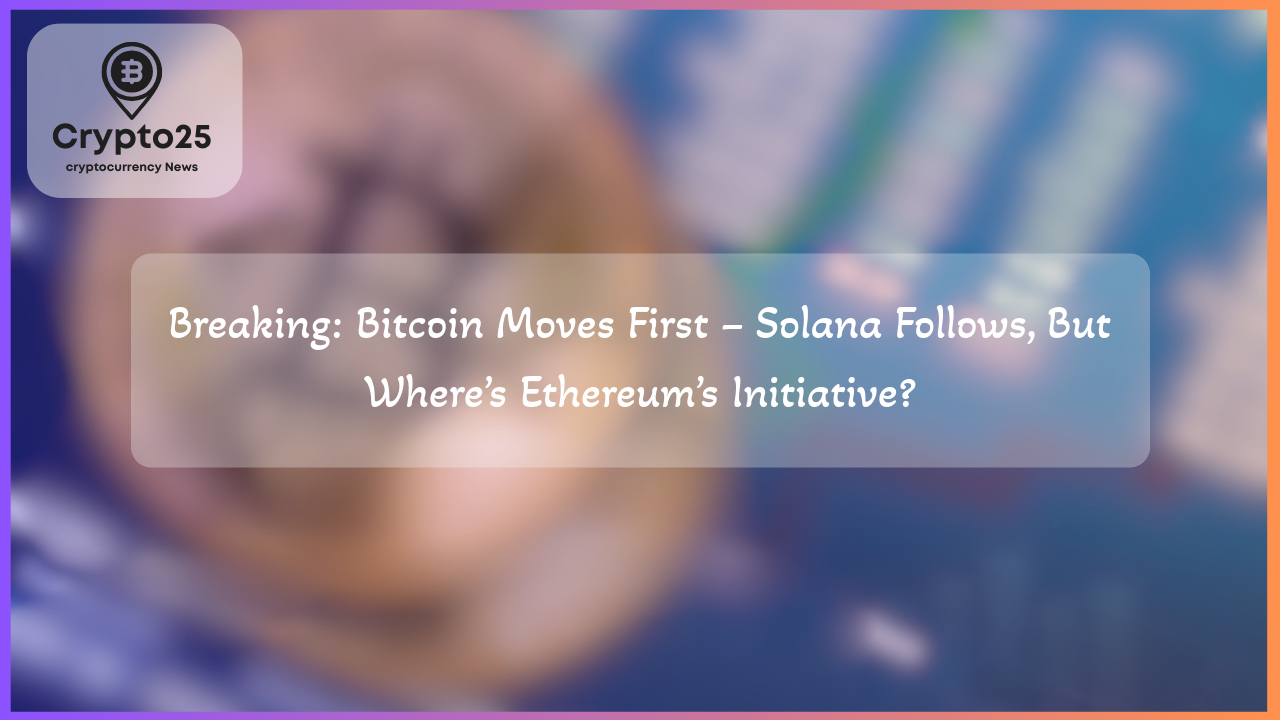
The year 2025 is poised to become a monumental one in the world of cryptocurrency regulation and policy. With rapid changes in legislation, active involvement from federal agencies, and increasing interest from blockchain advocates, the American capital has become a hub for shaping the future of digital financial ecosystems. While some chains are fortifying their presence in Washington, the question remains: where does Ethereum stand amidst this dynamic shift?
Ethereum’s Role in Crypto Policy: Establishing Its Influence in 2025
In the global race to solidify crypto policy, various blockchain networks are enhancing their advocacy strategies. Ethereum, the blockchain synonymous with smart contracts and decentralized applications, is already central to most policy discussions in Washington. Unlike competitors who rely heavily on centralized lobbying institutes, Ethereum leverages its widespread community for representation. According to Bill Hughes, Consensys’ Director of Global Regulatory Matters, Ethereum’s engagement with regulators is inherently robust, eliminating the need for branded lobbying initiatives like those of Solana.
As federal bodies continue to redefine crypto staking regulations, Ethereum remains the core of these regulatory conversations. During recent meetings with the SEC, Hughes noted that the agency discussed staking practices predominantly in an Ethereum context. Even specialized practices such as MEV (Miner Extractable Value) have emerged as Ethereum-centric policy matters, further cementing its dominance within regulatory frameworks. Competitors, such as Solana, participate in these discussions but often appear as secondary players compared to Ethereum’s natural prominence.
Decentralization as Ethereum’s Strength in Policy Advocacy
A decentralized ethos is at the heart of Ethereum’s approach to policymaking. Its ecosystem thrives through diverse contributors, making its advocacy efforts inherently distributed. Danny Ryan, a key Ethereum developer who played an instrumental role during the network’s transition to proof-of-stake in 2022, believes Ethereum’s broad, decentralized advocacy network is more effective than centralized lobbying efforts. He asserts that Ethereum’s decentralized nature reflects its operational and cultural strengths, aligning with its mission of innovation through inclusivity.
Ryan has joined numerous advocacy conversations, including strategic meetings in Washington and on Wall Street, where he collaborated with stakeholders to address key issues like staking-related exchange-traded products (ETPs). His involvement follows the formation of Etherealize, an emerging entity designed to improve Ethereum’s engagement with financial leaders and regulators. Ryan and other Ethereum representatives emphasize that rather than resorting to heavily branded lobbying, Ethereum prefers coherent, community-driven discussions to influence key stakeholders.
Ethereum’s Strategic Vision: Advocacy Without Marketing Hype
Unlike competitors positioning their lobbying efforts as bold promotional exercises, Ethereum opts for a more understated strategy. Hughes believes marketing initiatives for Ethereum’s policy work are unnecessary given the network’s well-established reputation across regulatory bodies. Despite recent critiques alleging insufficient public relations efforts by the Ethereum Foundation, advocates like Danny Ryan believe the ecosystem’s decentralized advocacy is the right direction. Ryan admits there’s room for improvement in shaping coherent narratives but maintains that Ethereum’s success lies in amplifying authentic voices within the network.
In various policy areas, including staking ETPs and general crypto taxation, Ethereum’s name dominates discussions—a testament to its market and regulatory influence. By adopting a decentralized framework, Ethereum ensures that it remains agile and adaptive in addressing the ever-evolving challenges within the world of crypto.
| Title | Details |
|---|---|
| Market Cap | $1.2 Trillion (as of 2025) |
Ethereum’s decentralized advocacy model may face scrutiny, but it epitomizes the network’s fundamental values—diversity and resilience. In the rapidly transforming regulatory landscape of 2025, Ethereum’s approach stands as a model of innovation, prioritizing its principles over marketing-led narratives. As crypto policy evolves in Washington and beyond, Ethereum’s commitment to transparent, community-driven governance ensures its continued relevance and dominance in the ever-competitive blockchain ecosystem.
